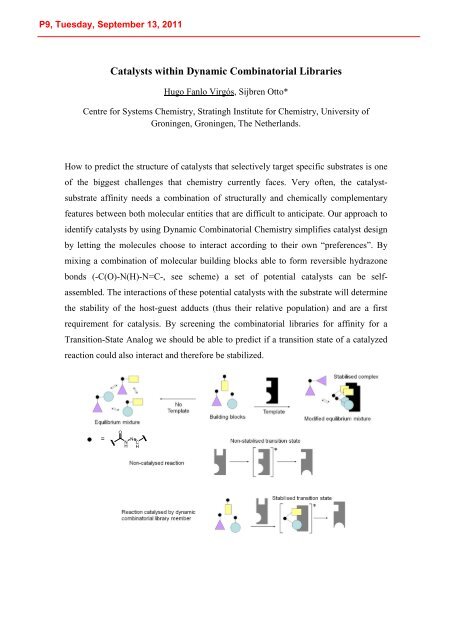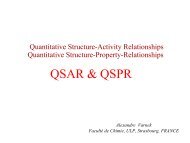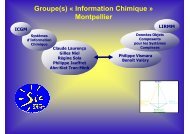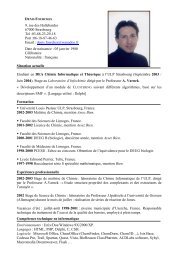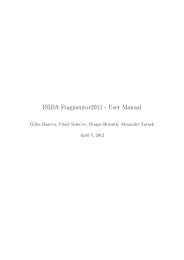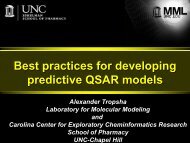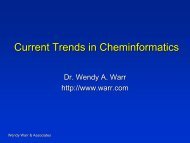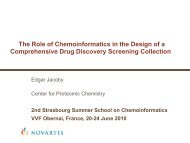International Summer School PROGRAM - Laboratoire d'Infochimie ...
International Summer School PROGRAM - Laboratoire d'Infochimie ...
International Summer School PROGRAM - Laboratoire d'Infochimie ...
You also want an ePaper? Increase the reach of your titles
YUMPU automatically turns print PDFs into web optimized ePapers that Google loves.
Catalysts within Dynamic Combinatorial Libraries<br />
Hugo Fanlo Virgós,<br />
Sijbren Otto*<br />
Centre for Systems Chemistry, Stratingh Institute for Chemistry, University of<br />
Groningen, Groningen, The Netherlands.<br />
How to predict the structure of catalysts that selectively target specific substrates is one<br />
of the biggest challenges that chemistry currently faces. Very often, the catalystsubstrate<br />
affinity needs a combination of structurally and chemically complementary<br />
features between both molecular entities that are difficult to anticipate. Our approach to<br />
identify catalysts by using Dynamic Combinatorial Chemistry simplifies catalyst design<br />
by letting the molecules choose to interact according to their own “preferences”. By<br />
mixing a combination of molecular building blocks able to form reversible hydrazone<br />
bonds (-C(O)-N(H)-N=C-, see scheme) a set of potential catalysts can be selfassembled.<br />
The interactions of these potential catalysts with the substrate will determine<br />
the stability of the host-guest adducts (thus their relative population) and are a first<br />
requirement for catalysis. By screening the combinatorial libraries for affinity for a<br />
Transition-State Analog we should be able to predict if a transition state of a catalyzed<br />
reaction could also interact and therefore be stabilized.<br />
=<br />
O<br />
N<br />
N C<br />
H H


